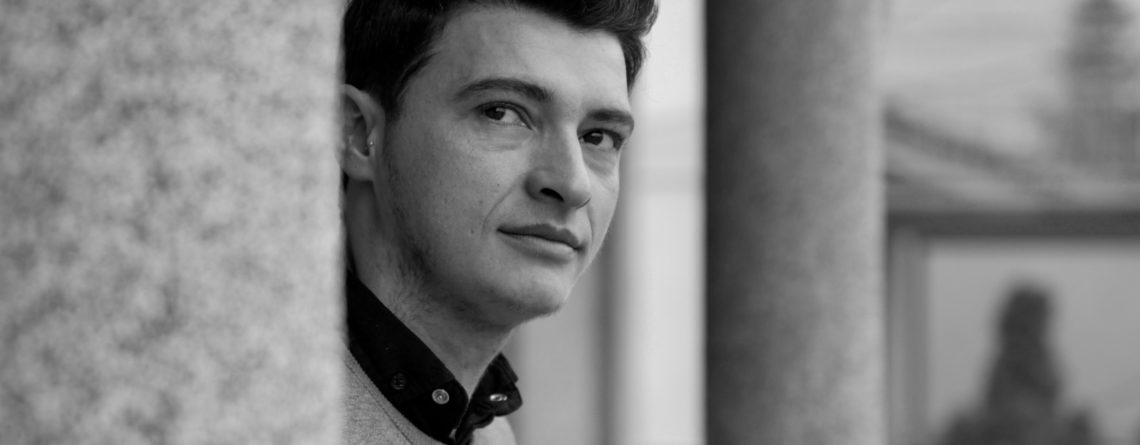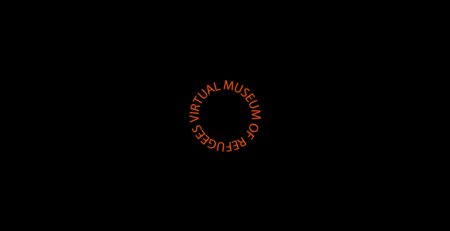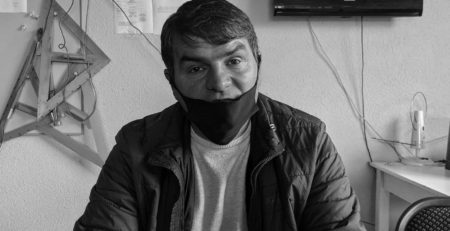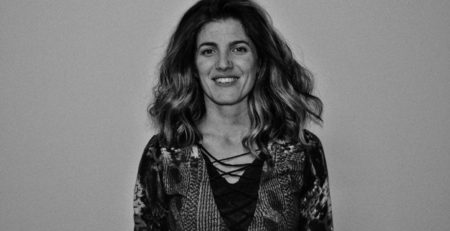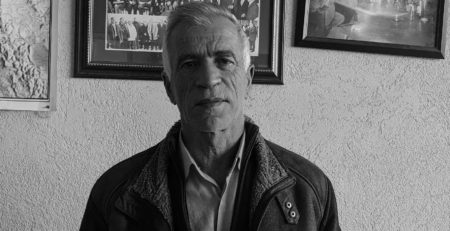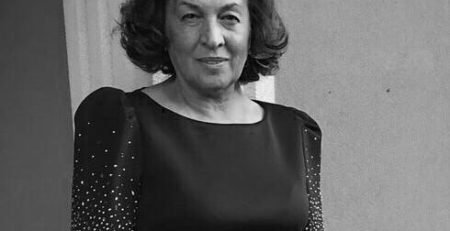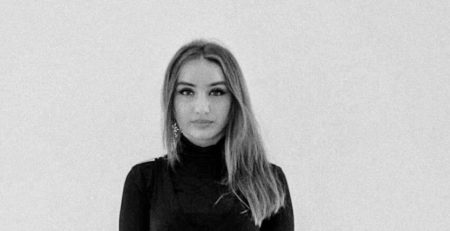Blert Morina
BG: Can you tell me how you remember the period before the war? Do you have any special memories?
BM: I have partial memories, but I don’t have an entire event, what do I know … from the period when we start to remember. These are intermittent memories, and I don’t remember how it happened. I don’t remember what my childhood was like, I don’t know exactly ….. from the period when I just started going to first grade, it’s all part by part memories, depending on events that may have been important and in that form, I remember them.
BG: How old were you during the war?
BM: During the war, I was 9 years old, more precisely when the war started to look more certain, and the period when we had to leave Kosovo. I was 9 years old at the time.
BG: Do you remember how the war started to be mentioned, how did you understand the war?
BM: Realistically, not much was said about the war, because the talks about it were held separately. The men talked about it at rallies while the women were separated. At the time, those topics were considered to be male topics. So as children we were excluded from such meetings and topics, and about what was going on around us. But about the war and its seriousness, as far as I am concerned, I remember when the massacre took place in Rogovo, in the village_______, it was around 5:00 – 6:00 in the morning and when the massacre took place, we were asleep. My father came in and said _____________, and that was one of the moments I remember, and when I thought about the fact that the situation was not very good.
BG: And what happened after that news, what did you do as a family?
BM: I think after that moment, our environment started to change, the way we reacted and the way we went out, because the situation itself started to get worse. Then after the observation in the village, because the people who were captured and killed in that village were members of the Kosovo Liberation Army, who brought weapons to supply the Kosovo Army. Then we became a target, and then as a target we had to completely change________. I know that we were surrounded for a few months, evicted from the house, so the complete settlement was relocated in the basement of one of my uncle’s houses. Back then, we thought basements were safer. It was very interesting, if you go to that house now, then you wonder how it is possible for all people to fit in that house, because when you go now on that floor with 10 people it seems to you that you are choking, even though there were many children, I say for those men and women who were then housed there. We slept dressed, we couldn’t change for sleep, we couldn’t wear pajamas. We slept with our shoes on, because there were times when they would come and tell us that they would catch us, so we would go to the forest, so we were always on standby, even though Rogova was located near the village where some of the biggest crimes during the war. ___________, so we were in one position, then the village of Rogova was located in the mountains so we were always the target, and for those reasons we had to be very careful. I remember that in those months, when we decided to stay there, there were cases when we had to go to the mountains, and we thought that there were Serbian police in the mountains as well. I remember one case when we got on a truck, we had a lot of clothes, and they had to cover it with nylon so it wouldn’t get wet, and then as children we were just thrown on the truck, we didn’t have time to think about not being someone hurt or have someone dealt with us … it was necessary for us to survive. I remember that case, because after that we were placed in the village of____, which is a nearby village near mine. The same house was shelled the next day and we were inside. When someone would ask me how we escaped, until the moment when the grenade exploded and when I saw that one man’s arm was torn off, it was not very clear to me until that moment, but from that moment on, I don’t remember anything. So I remember the war partly depending on the event. Because really for a 9-year-old, it was a trauma how to see some things and hear, because although during the first months not much was said about the war, and since we were all housed in one place, we had to talk about the war , we would hear about what is happening, how many people have been killed, what massacres are happening, because maybe this was to prepare us children that if something happens you have to continue, you have to find a way to escape. From the moment the massacre took place in the village, the information was not hidden, since then we have not been treated like children. The conversations were conducted in such a way that, due to the age, we could understand them, information was given to both adults and young people.
BG: How do you remember the atmosphere, which prevailed in those moments when you were hiding, what kind of conversations were held?
BM: While we were in the house, in the basement, we were freer to talk. But it wasn’t that easy when we were in the mountains. We were not allowed to turn on a light, so as not to be identified where we were located, we could not talk so as not to be heard, it was night, darkness, mountains, the voice was heard, etc. Etc. ________________, since it was a mountain, we had the elderly with us, they needed help. Everyone took care of their grandparents, helped them move, so we had to talk during a short walk _______, in order to reach the forest, because there are big trees there so that they would not identify us. During the night we didn’t know how safe it was and we couldn’t sleep, it was always a practice to push through the night during the day, then there was such an atmosphere that food was prepared during the day with the idea that you wouldn’t go back there. Then imagine how much food was needed for about 100 people or 200, it had to be prepared with the idea that we would not return. I’m talking about food for a large mass, and certainly the situation on the mountain was different, you had nowhere to sleep, you were sitting on the ground. Nobody thought about catching a cold, or whatever … it was just to survive, to go down in the morning and then after with the idea that everything was fine in the village.
BG: Do you remember approximately how long the transition lasted, the mountain-house, and all the chaos that the war caused?
BM: I’m not good with the dates, but in January when the massacre happened, somewhere at the end of March there was an abandonment of the house, so from the massacre to the moment of abandonment was this routine, because the position of the village, although let’s say there were no actions in our village already in the surrounding villages, it automatically meant that they would remove us as well, because for us and the observers … there were certainly a few people who followed in shifts to follow and to let us know to run away, so that they wouldn’t catch us. For us, the biggest fear was that they would not find us inside, because there were many events that we heard about, about things that are being carried out by the Serbian army. There were cases when people left their villages, but we could not identify them and we thought it was the army. There were cases when there was no need to take shelter at all, because we could not clearly identify who was coming out of those villages, and we automatically had to react. Every time we had to leave the village, chaos would ensue, and everything was like: they will catch us, let’s run! Then we would trample people, just to get out of the houses … so when someone would say this word, you just look at how to get out of the house as soon as possible. There were cases when people would forgot children, who were sleeping. I remember one case when a person started shouting halfway that ‘’child was not with me’’… that child was 5 years old. This shows that every time you left the village, there was a state of emergency, you didn’t have much time to think, or to consider the situation that it was not the Serbian army. It was different for us because we thought that something good was really starting with the NATO intervention, but in this case, it turned that we had to leave Kosovo completely. It was a difficult process, because then when we left we didn’t have a deadline to come to terms with that fact. An ultimatum happened that in 2 hours, whoever does not join the column near the village mosque, will be shot. And then we decided to join the column, and at that moment the hopes were extinguished, even though NATO started intervening, that Kosovo would win and gain independence, etc … all those ideals we had until then.
There were other challenges, before receiving information that Kosovo was being liberated.
BG: What was the experience like?
BM: I definitely think it’s important to mention the trip from the village to Albania. We split up because we were a big family. I was in the truck with my uncle, and the truck was covered with some tarpaulins, to protect ourselves from the rain, there were about 40 of us in the trailer. We headed towards Albania using the old road, a journey that lasted about 12 hours, it was a terrible journey, 12 hours because there were many of us, we couldn’t move, we couldn’t move our legs. We were all in a sitting position and we were watching what was happening. We joined the column, I know that I did not forget that moment, to get out on the main road from our house there is a shortened road, and to get out on the main road takes about 3 minutes by car, I remember when our yard was filled with Serbian soldiers. ..all this happens in 3 minutes. The ultimatum was when there was not a single Serbian soldier, but only to leave everything in 3 minutes … so much worry was gathered, so we could not release cattle, dogs or cows from the chains, we did not have time …. they have already remained so bound. We did not know whether they would be released, whether they would be burned alive with their houses, and I know that in the three months we were in Albania this was constantly mentioned. We joined the column, the column was really long, and when we joined the column, the idea was that we would never return to Kosovo again. So that each of us tried to take as many things as possible, both cars and tractors, etc. etc … so this made the column as long as possible __________. The trip was horrible and slow because of the column, I know that it was coordinated that if someone stopped us, to give them a ducat, various stories were heard, to break their ears, to do this or that, to stop trucks … so we are in the middle travel in the truck took off our clothes, we put some sponges on, we put some guys in the back, covered them … and then half of the truck seemed to be with things and there weren’t many people. These were guys between the ages of 15 and 18, so we covered them. They were forced to sit in that narrow part, with all that wardrobe over them along the way, because of the various stories we heard. We continued our journey to the border, the good thing was that we were not stopped during the trip, as far as I remember … but when we reached the border we had a lot of difficulties. There were people who said that if there were people over the age of 18 to go out and join the Kosovo Liberation Army, even though we had guys over the age of 18 because this applied to them, it was impossible because these guys were not prepared, because many of them they never had weapons in their hands. Even if they were directly involved, it was unacceptable for us. And to tell you the truth, we continued to hide them in the truck, in order to avoid all this. We stopped in Kukes one evening, they put us in a big room, it’s like a basketball gym, closed type. I don’t know where we slept, it was just the ground, we slept there that night, maybe there were 1000 people from all over. Tomorrow morning, I remember when we were looking for bread, that bread that was given to us for those of us from Kosovo was somehow … because we made bread at home until the war, our food was always fresh, warm. The bread given to us was so strong that there was no chance of it splitting into two parts. We couldn’t eat it because we didn’t have anything to eat with.
Then they decided to separate us, more precisely to leave one person to drive, and the others to be distributed on buses in order to take them to different places, which Albania designated for refugees. I don’t remember exactly how I came to be separated from my parents, I don’t know if we were in a hurry to take our seats on the buses so as not to stay in that place because it was really very cold, and then we stayed apart. My parents, father, mother and brother went somewhere else, me and my younger sister of 2 years got on another bus. They took us to Berat, they put us in a military barracks, which were abandoned. The barracks had neither doors nor anything. They brought us some black blankets, to improvise the door. The nights were warm, I’m talking about a period that ________________ was quite appropriate, where you could sleep without doors and windows. I don’t remember how we lived during this week, in the sense of how we ate, there was some humanitarian aid, but for that we needed the head of the family. There was also fear among us, there were cases when families sent maybe a couple of times other children to take food 2 or 3 times, due to the fear that there might not be food tomorrow. So, I don’t remember exactly how we survived those weeks. I remember only one situation after midnight, after a week when they found us and when they identified where we were, my uncle came to pick us up. I was scared because every time someone passed by the entrance with a blanket. I also had an obligation to my younger sister who was with me. That night I slept, and then when my uncle came in … I can’t describe it to you, we didn’t have information, we didn’t have phones, we didn’t know how far we were, what Albania is. Although there were children we played with during that week, it was challenging to talk to children from Albania. Then there were also a lot of weapons left in that circle of the barracks, all over the circle. We heard stories about people come here during the night as if they were having fun, so when you hear those stories then you don’t know how true they are, so we still had to stay thinking that we are still at risk, as if we were in Kosovo.
When my uncle came, it was around 01 or 02 in the evening, he brought us one chocolate, it was amazing. I don’t know, it was kind of … maybe that’s when I started to feel _______. It no longer mattered where we were housed, but that we found them and that they found us. There was one red van, it was very cramped in it, they took some other people too, so we were all identified by the families …. but it wasn’t hard for me, and I slept all the way. From the moment I got in the van to the moment we arrived, I slept all the way. They were housed in __________, in a city school that was no longer in use, very old, but they adapted it to be populated, with plenty of things and food. I remember when we entered that school, there were people from all the cities of Kosovo, Gjakova, Malisheve … from everywhere. Not only families but also settlements were accommodated in the rooms, we were accommodated in the room where the others from Rogova were, maybe 4- 5 people per room. I remember when I entered the room and when I opened the door, I didn’t know where to look, I was looking for my father and mother, they were all lying down … but they were waiting for us so awake, the light was on _________________ then there was a joke, we could sleep freely. Although it was crowded, it was very nice, I didn’t feel bad that all these people were here … it was very strange, I knew we could sleep freely. When we left the house, my mother had long hair, but that night I didn’t notice … that when they were placed in that camp all the women had short haircuts. Tomorrow, the day I went out to see the place, we woke up very early, we had to leave the space so that the women could clean the rooms and make a place where we could sit during the day. We had to unpack the sheets, stack them in the corners …… we usually woke up early in the morning to vacate those rooms and to tidy up … our school was located on the ground floor, and it was in iron, a kind of feeling as if it were a prison. When I went outside and when I saw that my mother’s hair was cut very short, I had a bad feeling, it kind of associated me like in the movies I watched, I didn’t know what happened, why her hair was cut, … I know that then I could not take a single step because it was a kind of very great trauma. I couldn’t … I don’t know what was going through my head at that moment, I just know that it was very difficult for me … I realized that her long hair was cut short. Then in town_______, people were very good, I remember they came during lunch or when they heard that new refugees had arrived, they brought some meat________, it took time for the baths to be arranged in that facility. Various families came, they would say that they could take 5 people who wanted to take a bath, 6 if they had lunch … etc, etc. and within the school there was a great understanding, if someone came … then they would be suggested to go to take a bath, etc. Etc.
We stayed there for 3 months, I know that in the beginning we did not go to school, kidnaping of children was widespread. So they didn’t let us go to school. Two twins from Malisheva, 7-8 years old, disappeared, then a panic arose because the children were being kidnaped. Since then we have been going to and from school accompanied by the police. Then we also realized that it doesn’t work that way, because there is also a language barrier. Since the school year ended there, we then started teaching with Kosovo teachers. Let’s be clear, it wasn’t real teaching, it was about children going to school in order to gain the influence to get things back to normal. As far as I remember, no classes were held because it was noticed who was singled out, it was known what was happening. I also know that there was an Arab association that helped us, we took an improvised student canteen, they supplied it with food, I know that my whole family worked there, preparing food for all refugees, i.e breakfast, lunch and dinner. We all went to that canteen and ate, most of those who were there were hired as waiters, to wash the dishes, etc., etc. There we all became one big family who started sharing responsibilities, and in three months it was very good. The children also had space to play, since that school was in a part that was separated from the city, and there was a place with greenery, we could play football, and whatever we wanted. There were companies that shared help. There were older who were hired to prepare meals, wash dishes, serve, etc., etc. Things started to return to normal. A week before we returned to Kosovo, we listened to the news … in that period there were problems, there was no telephone and internet as we have today, there were problems to identify to talk, how much money is needed. Today we go to Albania often, but then it was the first time for most, for my age and older … we didn’t know how Leke (currency) works, what is needed. We didn’t all know when we would return, we needed to keep the money, there was always uncertainty, we always had to keep the money. We saved more than normal, i.e. more than was needed. I don’t know when and since when we heard that Kosovo was liberated, and that there are no more Serbs. I remember we were in a room where there were about 50 people, all of them from the beginning to the end in the same place. I remember my uncle saying that he would go first, to see if we had a place to go back to, to see what the situation was like, and then he would come back to tell us what the situation was like. My uncle came to Kosovo, after a week he came to ______. I don’t know why, but this time we went back to Kosovo, we went back during the night. I know that the father said that he wanted to get back in the car, that he no longer wanted his children to be driven in a truck, and that things should be correlated with each family, that the children should be together with their parents. Not like the first time we came to Albania, we came in trucks, in tractors, separated. When we returned, my father and I were in the car, just our family. When we went to Albania it was a horror, and when we came back it seemed like 5 minutes, it made me much easier even though we used the same way. When we entered Prizren, I remember all the way, from when we left during the night and when we arrived in Prizren. I also remember that there was an atmosphere … I don’t know, we stopped at my uncle’s on the way to see them. Everything looked different to me, probably because we played all the time, I saw the KLA. Earlier when we went, we all somehow hid. When we went to my uncle’s now, it looked different. From there we went to the village, in 20 minutes, we, apart from our uncles, were the first to return home. We were with the car and that is the reason, because others came back with tractors, trucks. The first thing I noticed, we had one cherry behind the house, which almost never yield and I always wondered why it was there. When I entered the yard, I noticed that cherry yields so much that the leaves were not noticed, the branches were full, they just didn’t break … cherry really yield a lot. When we entered the yard, the mother said that we should not move around the house much, because she might have thought that there were mines or whatever was set up, so we did not move around the house much or go around. When we entered the first house it was ok. When we entered the other house, it was interesting, you didn’t see the carpets, so much garbage was thrown, then cows, dogs … nothing was seen. There was one dog in the middle, he didn’t move, he was just watching us. We didn’t know how to throw him out, we were afraid he would attack us. The dog was calm, he was watching us and we were watching him, so we watched each other for an hour. Then we went out, in the third house, it was ok. We had one big Albanian flag, they cut it with knives. When my uncle came before us, he noticed that the heaters were facing the floor, so if the electricity came, the houses would catch fire. All those heaters were plugged in and turned down toward the carpets. One of the moments I remember that day we transferred all the things from the houses, all the houses were painted, as we left them, and the houses were habitable.
More or less this was all!
BG: Thanks a lot, just one more question. What impact did the war have on you?
BM: I think we have somehow sinned against ourselves, _____________, even though we are young and healthy now, I think that someday the events of the war will occur, the traumas we have survived, so the more some things are delayed can be riskier at first we don’t deal with those traumas we have. Every time we talk about the events of the war, here and now after 20 years, and this speaks to the trauma that the war could have left on me____ I don’t know if you noticed, that during this conversation I was overwhelmed by emotions from time to time. Going back to the situations we survived, it tells you that there is trauma, but our problem is that we do not deal with that issue. There will come a time when we will have to deal with this issue, so that’s it.
BG: Thanks a lot, Blert,
BM: Thank you very much, and I congratulate you on this initiative, where survivals from the same place with different people are seen.

